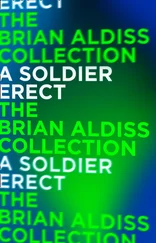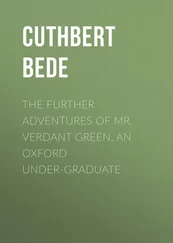We parted, our throats tight with emotion, saying "Au revoir," and "See you soon."
As Rita and I drove on toward Ciudad Piar, a town springing up by an iron deposit they were getting ready to mine, I spoke about Maturette and the extraordinary ups and downs in life. He and I had been on the brink of death at sea a score of times; we had been captured and taken back to prison; and like me he had copped two years of solitary. And now as Rita and I were driving in search of some new adventure, I found him on the eve of his marriage. And to both of us at the same moment there came this thought: The past doesn't mean a thing; all that matters is what you have made of yourself.
We found nothing suitable at Ciudad Piar and went back to Caracas to look for some business that was doing well.
Very soon we found one that answered to both our abilities and our purse. It was a restaurant called the Aragon, right next to Carabobo Park, a very beautiful spot, and it was changing hands: it suited us perfectly. The beginning was tough, because the former owners came from the Canaries, and we had to change everything from top to bottom. We adopted half-French, half-Venezuelan menus and our customers increased in number every day. Among them were plenty of professional men, doctors, dentists, chemists and attorneys. Some manufacturers, too. And in this pleasant atmosphere the months went by without incident.
It was on a Monday, on June 6, 1956, to be exact, that the most wonderful news reached us: the Ministry of the Interior informed me that my request for naturalization had been granted.
It was my reward for having spent ten years in Venezuela without giving the authorities anything to criticize in the life I had led as a future citizen. On July 5, 1956, the national holiday, I was to go swear loyalty to the flag of my new country, the country that accepted me, knowing my past. There were three hundred of us there in front of the flag. Rita and Clotilde sat in the audience. It's hard to say what I felt, there were so many ideas milling about in my head and so many emotions in my heart. I remembered what the Venezuelan nation had given me-both material and spiritual help, with never a word about my past. I remembered the legend of the lano-Mamos, Indians who live on the Brazilian frontier, the legend that says they are the sons of Peribo, the moon. When the great warrior Peribo was in danger of being killed by his enemies' arrows, he leapt so high to escape from death that he rose far into the air, although he had been hit several times. He kept on rising, and from his wounds there fell drops of blood that turned into Iano-Mamos when they touched the ground. Yes, I thought about that legend, and I wondered whether Simon Bolivar, the liberator of Venezuela, had not also scattered his blood to give rise to a race of generous, openhearted men, bequeathing to them the best of himself.
They played the national anthem. Everybody stood up. I stared hard at the starry flag as it rose, and tears flowed down my cheeks.
I who had thought I should never sing another national anthem in my life, I roared out the words of the anthem of my new country with the others, at the top of my voice-"_Abajo cadenas_…" Down with the chains.
Yes, that day I really felt them drop off forever, the chains I had been loaded with. Forever.
"Swear loyalty to this flag, which is now your own."
Solemnly all three hundred of us swore it; but I am sure the one who did so with most sincerity was myself, Papillon, the man his mother country had condemned to worse than death for a crime he had not committed. Yes, although France was the land that bore me, Venezuela was my haven.
Now events moved very rapidly. As a Venezuelan I could have a passport, and I got one right away. I trembled with emotion when they handed it to me, and trembled again when I got it back from the Spanish embassy with an elegant three months' visa. I trembled when they stamped it as I went aboard the _Napoli_, the splendid liner that was taking Rita and me to Europe, to Barcelona. I trembled when the Guardia Civil gave it back to me in Spain, with the entrance visa. This passport, which had made me the citizen of a country once more, was so precious that Rita sewed a zipper on each side of my inside coat pockets so that I could not lose it, whatever happened.
Everything was beautiful during this voyage, even the sea when it was rough, even the rain when it came driving across the deck, even the ill-tempered guy in charge of the hold, who unwillingly let me go below to make sure the big Lincoln we had just bought was properly stowed. Everything was beautiful because our hearts were on holiday. Whether we were in the dining room, at the bar, or in the saloon, and whether there were people around us or not, our eyes kept meeting so we could speak without anyone's hearing-because we were going to Spain, right up by the French border, and we were going for a reason I hadn't dared to hope for these many years.
The purpose of this hurriedly prepared voyage was to let me see my family once more, on Spanish territory out of reach of the French police. It was twenty-six years since I had seen them. We were going to spend a whole month together, and they were coming as my guests.
Day after day went by, and I often went to the bow, spending a long time there, as if this part of the ship were closer to our destination. We had passed Gibraltar; we had lost sight of land again; we were getting very near.
1 settled myself comfortably in a deckchair, and my eyes tried to pierce the horizon where any minute now the land of Europe would appear. The land of Spain, joined to that of France.
1930-1956: twenty-six years. I had been twenty-four then; I was fifty now. A whole lifetime. My heart beat violently when at last I made out the coast. The liner ran on fast, carving a huge V in the sea, a V whose far ends spread and spread until gradually they vanished and melted into the ocean.
When I left France aboard _ La Martinière _, the accursed ship that was taking us to Guiana-yes, when she steamed away from the coast, I did not see it: I did not see the land, _my land_, drawing gradually away from me forever (as I thought then), because we were in iron cages at the bottom of the hold.
And now here I was with my new passport in the pocket of my yachtsman's blazer, well protected by Rita's zipper-the passport of my new country, my other identity. Venezuelan? You, a Frenchman, born of French parents-of schoolteachers, and from the Ardèche into the bargain?
I was perhaps five when my grandfather Thierry bought me a beautiful mechanical horse. How splendid he was, my lovely stallion! Almost red; and such a mane! It was black, real horsehair, and it always hung down on the right side. I pedaled so hard that on a level surface our maid had to run to keep up with me; then she would push me up the little slope I called the hill; and so, after another level stretch, I reached the nursery school.
Madame Bonnot, the headmistress and a friend of Mama's, wel. comed me in front of the school; she stroked the long curly hair that came down to my shoulders like a girl's and said to Louis the caretaker, "Open the door as wide as it will go so that Riri can ride in on his splendid horse."
I pedaled with all my strength and flew into the playground. First I made a great sweep all around it and then I gently dismounted, holding the bridle so it would not roll away. I kissed Thérèse, the maid, who handed Madame Bonnot my sandwiches. And all the other boys and girls, my friends, came to admire and stroke this wonder, the one and only mechanical horse in these two little villages, Pont-d'Ucel and Pont-d'Aubenas.
Every day before I set out, Mama told me to lend it to each one in turn; this I found rather hard, but still I did it. When the bell rang, Louis the caretaker put the horse away under the lean-to, and once we were in line we marched into school, singing, "_Nous n'irons plus au bois_."
Читать дальше
Конец ознакомительного отрывка
Купить книгу











